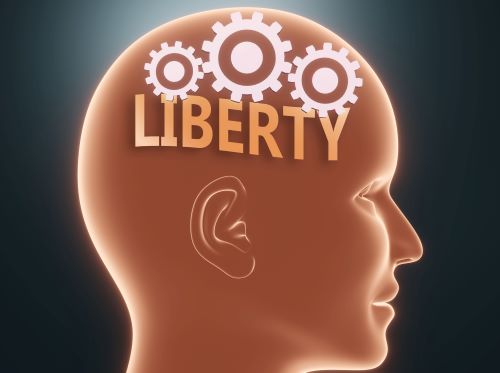Liberty Matters
And the Secular Powers Checked the Church

Ralph Raico quotes a famous passage from Augustine’s City of God and concludes: “This, it must be admitted, was a profound insight into the true nature of states, and stands in sharp contrast to classical antiquity.”
Related Links:
Ralph’s conclusion depends on what we think Augustine was saying. He was by no means condemning the state per se; on the contrary, Augustine was a big booster of the state, especially if it enforced Christian principles. His example of Alexander the Great and the pirate was taken directly from Cicero:
For when a [pirate] was asked what criminal impulse had led him to make the sea unsafe with a single little ship, he replied, “The same impulse which has led you, [Alexander], to make the whole world unsafe.[27]
The fact that Augustine’s entire discussion was based on Cicero’s treatment of commonwealths indicates that he was not breaking new ground. Like Cicero, Augustine was discussing the question of whether justice is a necessary component of a true commonwealth. There have been two major interpretations of Augustine’s own position, which I won’t go into here,[28] but the claim that justice is required for a legitimate state was a staple of classical political philosophy, as we see in the writings of Plato, Aristotle, and (most pertinent to Augustine) the Stoics.
Ralph wrote: “George admires the ‘laissez-faire’ morality of the Roman Empire. It is possible for those with different standards to disagree.”
I simply pointed out that Augustine did not recognize the distinction between vices and crimes – a distinction that later became a cornerstone of classical liberalism and libertarianism. According to Augustine, the institution of government, which was authorized by God as a punishment and remedy for sin, has a divine mandate to repress and punish sinful behavior. True, the category of sinful behavior includes what libertarians view as rights-violating activities, but the category also includes personal beliefs and self-regarding actions. There was nothing liberal or libertarian about Augustine’s view of the proper functions of government. On the contrary, Augustine’s extensive defense of “righteous persecution,” according to which people may be coerced for their own good, was one of the most pernicious doctrines in the history of Western civilization. Moreover, as every libertarian knows, to say that people should be free to do x does not imply a moral sanction of x.
Ralph wrote: “The world-historical difference that Catholicism made is this: regardless of its intentions, it played a critical role during crucial centuries in thwarting state power. This could only have been accomplished by an independent, international, and powerful Church.”
I agree with this analysis, as I thought I made clear in my original comment. I stated that the main value of the Catholic Church, so far as its contribution to freedom is concerned, is that it sometimes served as a countervailing power against various secular powers and thereby prevented the establishment of one centralized power throughout Europe. But this role had little or nothing to do with the ideology of the Church itself, which was as absolutist as any secular state and sometimes advocated policies that were more oppressive than those desired by secular princes. Indeed, as many historians have pointed out, the Church itself was a type of state, in substance if not in name. To quote the distinguished medieval historian R.W. Southern:
In a word, the church was a compulsory society in precisely the same way as the modern state is a compulsory society…. It had all the apparatus of the state: laws and law courts, taxes and tax-collectors, a great administrative machine, power of life and death over the citizens of Christendom and their enemies within and without. It was the state at its highest power, such as even Hegel among modern prophets of the state scarcely contemplated.[29]
If we may say that the church prevented secular powers from becoming as totalitarian as they would have liked, we may also say, with equal justification, that those selfsame secular powers prevented the church from becoming as totalitarian as it would have liked. (Acton made precisely this point.) The medieval church, according to its defenders, had legitimate jurisdiction over all of Christendom, and its more extreme defenders (“papalists") extended this jurisdiction to the entire world. I can think of no medieval defender of secular power who made a comparable claim for princes and emperors.
Endnotes
[27] Marcus Tullius Cicero, On the Commonwealth, trans. George Holland Sabine and Stanley Barney Smith (Indianapolis and New York: Bobbs-Merrill, n.d. [reprint of the 1929 ed. by Ohio State University Press]), 210. [The translation of Cicero on the OLL is The Political Works of Marcus Tullius Cicero: Comprising his Treatise on the Commonwealth; and his Treatise on the Laws. Translated from the original, with Dissertations and Notes in Two Volumes. By Francis Barham, Esq. (London: Edmund Spettigue, 1841-42). Vol. 1. Chapter: CICERO’S COMMONWEALTH.: BOOK III. </title/546/83303/1958539>.]
[28] For a good discussion of this controversy, see Charles Howard McIlwain, The Growth of Political Thought in the West: From the Greeks to the End of the Middle Ages (New York: Macmillan, 1932), 154-60.
[29] R.W. Southern, Western Society and the Church in the Middle Ages (Harmondsworth, England: Penguin Books, 1970), 17-18.
Copyright and Fair Use Statement
“Liberty Matters” is the copyright of Liberty Fund, Inc. This material is put on line to further the educational goals of Liberty Fund, Inc. These essays and responses may be quoted and otherwise used under “fair use” provisions for educational and academic purposes. To reprint these essays in course booklets requires the prior permission of Liberty Fund, Inc. Please contact oll@libertyfund.org if you have any questions.